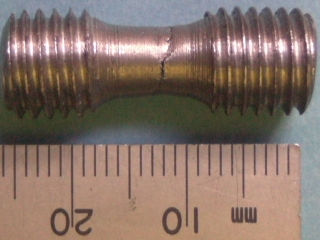The strength of a material is the ability to withstand an applied force without failure. Yield strength is the stress point beyond which the material begins plastic deformation. There are several types of tests to determine strength of material. Deriving strength of materials refers to various methods of calculating stresses in structural members such as:
- beams & columns
- shafts
- fasteners
- spring wires
- reinforcing wires
- various engineering components.
A test is performed on the sample of the component or on the actual component to predict its strength behaviour or its susceptibility to various failure modes when the part is in service or in operating conditions. The type of test is selected on the basis of direction of acting forces on particular structures or components or parts. The most common type of strength tests are Tensile and tension tests - longitudinal, Transverse and 'Z' direction or through thickness tensile test, Weld longitudinal and transverse tensile test, bond tension test, adhesive tension test, Compression test, Proof load test, Shear test, Torque test, Torsion test, Flexural test, Modulus of bending, bending moment test.
 |
LMATS Melboure and Sydney laboratories can prepare miniature test specimens for 'Z' direction or through thickness tensile test on plate thickness ≥ 20mm without welding extension pieces (BS EN 10164). The elimination of a welding process ensures that the material is not subjected to thermal shock and the test results are always true a representation of the values of the strength. LMATS Melboure and Sydney laboratories performs these tests in accordance with the following common standards - AS 1391, AS 2205.2, AS 1855, ASTM E8, ASTM A370, ISO 6892, ASME IX QW 150, EN 895, API 5L, |

